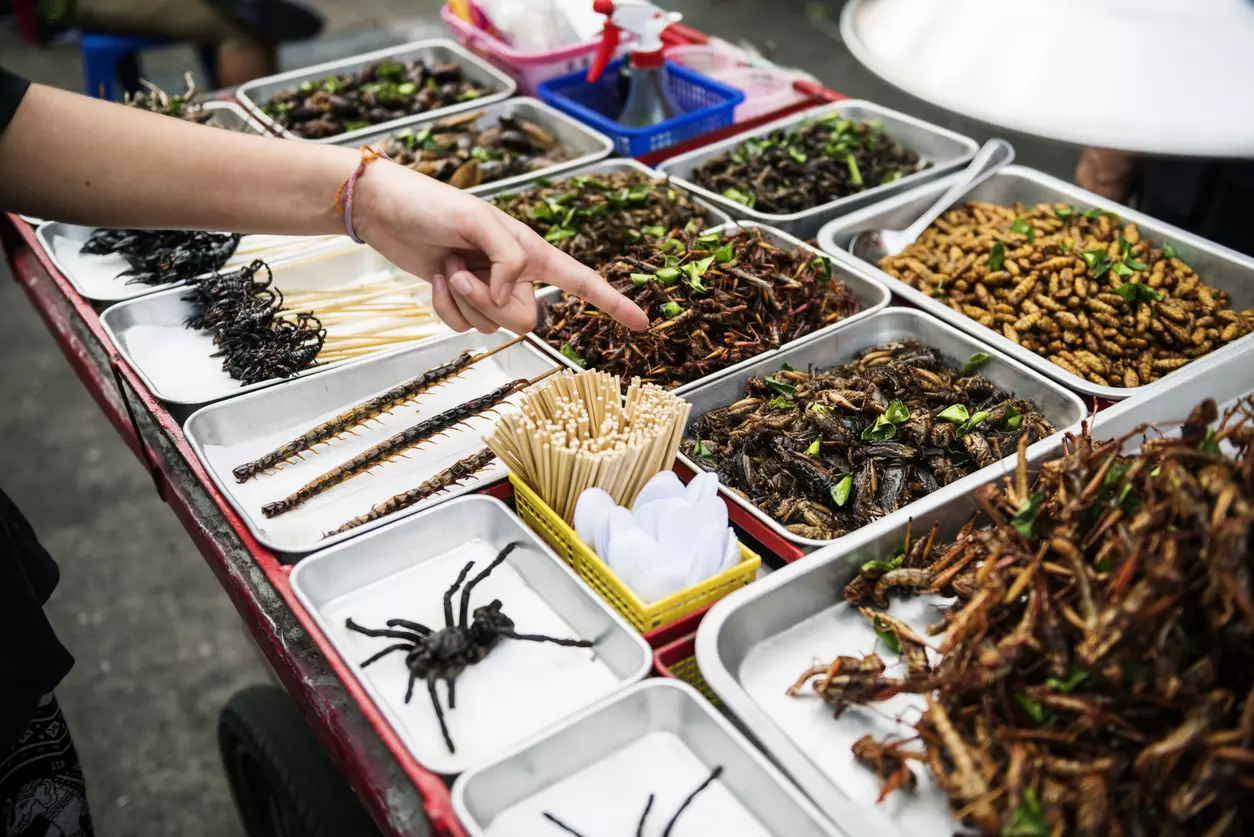
Singapore allows consumption of 16 insect species; is it healthy?
Singapore Food Agency says approved insect species must not be caught in the wild and no harmful substances should be used in their cultivation

Crickets, silkworms and locusts may soon be on the menu at popular eateries and restaurants in Singapore now that the administration has officially approved consumption of 16 insect species, both for humans and as feed for animals used in food production.
The decision was announced in a recent circular issued by the Singapore Food Agency (SFA).
“With immediate effect, SFA will allow the import of insects and insect products belonging to species that have been assessed to be of low regulatory concern," the agency said in the statement.
Insects approved for consumption
Below are the insect species that have been greenlighted as fit for consumption:
1. House cricket
2. Banded cricket
3. Common cricket
4. Two-spotted cricket
5. African migratory locust
6. American desert locust
7. Grasshopper
8. Superworm
9. Mealworm
10. Lesser mealworm
11. Lesser wax moth
12. Greater wax moth
13. Silk moth/ silkworm
14. White grub
15. Giant rhino beetle grub
16. Western honeybee
What prompted the decision?
According to Sender Channel News Asia (CNA), the SFA in its circular stressed the need for regulations for companies that plan to import, farm or process insects as the industry is still in its nascent form and “insects represent a new food source”.
Agency’s caveat
The agency, however, strictly mentioned that the approved insect species must not be caught in the wild and no harmful substances should be used in their cultivation and processing.
In the absence of international standards on consumption of insets, SFA based its guidelines on that followed by countries that already allow the consumption of insect species.
Are insects a part of South Asian food culture?
Even though various species of insects are consumed across the world, they have been a part of Southeast Asian diet for centuries.
Many Southeast Asian countries traditionally practise entomophagy or the practice of eating insects as they consider insects a powerhouse of protein and other nutrients.
Thai people for instance, consume a good amount of grasshoppers, crickets, silkworms and ants as they are rich in protein, iron, healthy fats and calcium.
Similarly, fried tarantula is a delicacy in Cambodia, while the Vietnamese like gorging on beetles, grasshoppers, bamboo bugs and termites.
Insects as food are also popular in Japan, South Korea and Cambodia.
What’s the catch?
Besides their high nutritional value, insects are consumed more as they are available in abundance. They are also said to have lower environmental impact than traditional poultry or livestock farming, which occupy more area and need more resources.
Some studies say the low-fat content in insects makes them an apt diet to reduce weight.
The United Nations has said eating insects could also combat malnutrition which is prevalent in many developing countries.
The Food and Agriculture Organisation (FAO) of the United Nations promotes insects as an alternative source of protein and one that is more sustainable than conventional forms of meat.
“Edible insects contain high quality protein, vitamins and amino acids for humans,” the FAO has said.
For instance, crickets need six times less feed than cattle, four times less than sheep and half as much as pigs and broiler chicken to produce the same amount of protein.
Other insect-eating countries
But Southeast Asia may not be the only insect-eating region.
According to FAO, 2 billion people consume insects as part of their traditional diet.
While 1,900 insect species are edible, beetles are the most commonly consumed insect followed by caterpillars, bees, wasps, ants, grasshoppers, locusts and crickets.
Besides, Southeast Asian countries, insects are abundantly consumed in Mexico, UK, China, Australia, New Zealand and several tribal pockets of India.
SFA also noted that other countries like Australia, South Korea, Thailand and the European Union already allow the consumption of insects.

